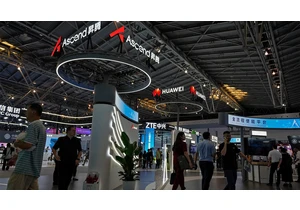General Motors’ Cruise self-driving unit will focus its development efforts on a next-generation Chevrolet Bolt as it indefinitely delays its planned Origin vehicle that would not have a steering wheel, the automaker said on Tuesday.
In 2022, GM filed a petition with the National Highway Traffic Safety Administration seeking permission to deploy up to 2,500 self-driving Origin vehicles annually without human controls such as brake pedals or mirrors. The agency has not acted on the request and GM cited the regulatory risk for its decision.
GM will instead use a conventional next-generation Bolt EV as the platform for its Cruise robotaxi, a move that will not require permission of U.S. regulators.
“I do think in the future there’s going to be opportunity for Origin – and so that remains open to us at the right time,” GM CEO Mary Barra said.
Analysts and industry experts have said the race to develop autonomous driving systems and robotaxis will be arduous, expensive and take years as the technology faces engineering and regulatory hurdles.
Tesla CEO Elon Musk on Tuesday said the electric car leader has made a lot of progress on Full Self Driving (FSD) and Robotaxi.
“My predictions on this have been overly optimistic in the past,” he said on a company conference call. “I would be shocked if we cannot do (unsupervised full self-driving) next year.”
He added that Tesla had delayed its unveiling of its Robotaxi product from August to Oct. 10 to allow for vehicle improvements.
On a separate call on Tuesday, Alphabet Chief Financial Officer Ruth Porat said the company will spend an additional $5 billion on its self-driving subsidiary, Waymo, over the next few years.
Waymo also said it has started testing a new robotaxi in San Francisco built by Chinese EV maker Zeekr, a Geely brand.
GM in November said it had temporarily halted production of its fully autonomous Cruise Origin, which has subway-like doors and campfire seating.
GM said its decision to pause Cruise production at a Detroit plant had triggered a charge of $583 million.
“The main reason with switching from the Origin to the Bolt is we extinguish the regulatory risk,” Barra said.
Musk said the reason Cruise had backed away from the Origin was more because it could not make the technology work.
“They’re blaming regulators. That’s misleading to do so,” he said. “It’s just that their technology is not up to par.”
GM spokesman Jim Cain called Musk’s comment on Cruise “blatantly false.”
“The issue was the unique layout and design of the Origin,” he said. “The technology that Cruise is developing gets better every day and no one should forget that Cruise has driven 5 million-plus autonomous miles and Tesla has driven zero, full stop.”
Cruise faces a number of investigations – including by NHTSA, the Justice Department and Securities and Exchange Commission – after an October accident in which one of its robotaxis struck a pedestrian and dragged her 20 feet (six meters). Cruise and GM came under heavy criticism after the accident and California revoked its permit to operate driverless vehicles.
Kyle Vogt, who co-founded Cruise and quit as CEO in November under pressure following the accident, wrote on X Tuesday that GM had killed the Origin.
“GM repeatedly finds themselves with a 5-10 year headstart, but then fumbles the ball, shuts things down, and loses the lead,” Vogt wrote, comparing it to GM’s early lead on electric vehicles in the 1990s that it lost.
Barra noted on Tuesday that Cruise in recent months had resumed testing of its robotaxis with human safety drivers in three cities and recently hired a new CEO.
Barra previously said the business could generate $50 billion in annual revenue by 2030. Cruise has lost more than $8 billion since 2017 and in January GM said it was cutting spending at Cruise by about $1 billion.
—David Shepardson, Reuters
Hyunjoo Jin, Greg Bensinger, Yuvraj Malik and Ben Klayman contributed to this report.
Melden Sie sich an, um einen Kommentar hinzuzufügen
Andere Beiträge in dieser Gruppe

A U.S. judge has ruled that China’s Huawei Technologies

Shares of U.K.’s Bytes Technology plunged over 27% on Wednesday after the IT firm said its operating profit for the first half of fiscal 2026 would be marginally lower due to delayed custome

Donald Trump’s Big Beautiful Bill Act has passed through the Senate thanks to

To a certain brand of policy wonk, January 31, 2025, is a day that will live in infamy.
It had been nearly two weeks since President Donald Trump took office for the second time—days th

For a few days, my finger would hover over the TikTok hole on my home screen. But

How far would you travel in search of a sweet treat?
“Bakery tourism” is on the rise, with more and more people traveling—sometimes across the globe—in search of the perfect flaky croiss
